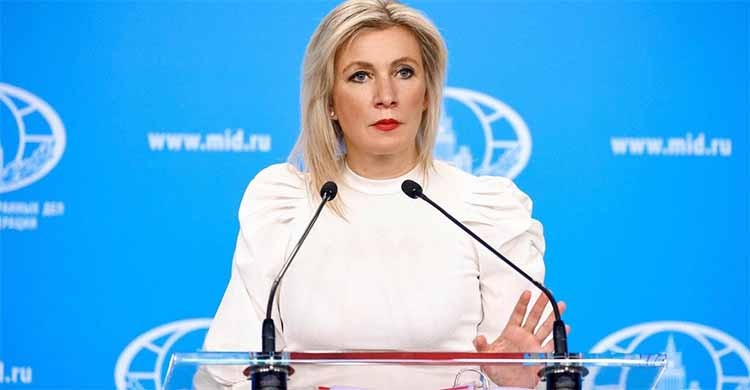US envoy’s Shaheenbagh visit is interference in Bangladesh's domestic affairs: Russia
25 December 2022, 07:37 pm | Updated: 21 April 2025, 11:57 am

Russia has described the recent incident involving the US ambassador to Bangladesh in the Shaheenbagh area of as an ‘expected result’ of the envoy’s activity.
At a regular briefing in Moscow on Thursday, Russian Foreign Ministry Spokesperson Maria Zakharova US Ambassador to Bangladesh was ‘persistently trying to influence’ the domestic processes in Bangladesh under the pretext of caring about the rights of the citizens, according to UNB.
The Russian official also termed the US ambassador's visit to Shaheenbagh to meet with the family of a supporter of an opposition political party as an attempt to interfere in the internal affairs of Bangladesh.
“As of late, his colleagues from the British and German diplomatic missions have been engaged in the same cause and have allowed themselves to openly give recommendations to the local authorities regarding transparency and inclusiveness in the parliamentary elections scheduled for next year,” Russian Foreign Ministry Spokesperson Maria Zakharova said in Moscow.
Russia said they believe that such actions that “violate” the basic principles of non-interference in the domestic affairs of sovereign states are “unacceptable”.
The Russian foreign ministry spokesperson said they have noted the widely publicized incident involving the US Ambassador to Bangladesh, Peter Haas, whose security was “allegedly threatened” by activists from a local public organization when he went to meet with the family of a supporter of an opposition political party on December 14, 2022, in Dhaka.
In 2013, the opposition party supporter went missing, the Russian spokesperson said.
“If anybody wants to ask: How about the terms ‘diplomat, immunity, embassy, security’? We always urge these things in accordance with international law and the Vienna Conventions on Diplomatic and Consular Relations,” she said.
“We urge the US, the United Kingdom and other countries to care about and comment not only on cases of their own security, but also to support their colleagues when the countries and their representatives, including at international organizations, raise questions about the security of their embassies and consular facilities,” Zakharova added.
“They do not care about this. At best, they remain silent and at worst, they justify those who do this. When international terrorists committed a series of attacks against our embassy in Syria, we urged the Americans to respond to this through the UN Security Council,” she said.
She said, “Everything was obvious. There can be no political justification for an unwillingness to publicly take a stand and use the common voice of the Security Council.”
The spokesperson said Washington did not support Russia’s proposal on the council taking a clear stance on the protection of diplomats and condemning terrorist attacks at embassies and against diplomats.
“There cannot be any double standards, only a joint consolidated position,” said the Russian foreign ministry official.






















